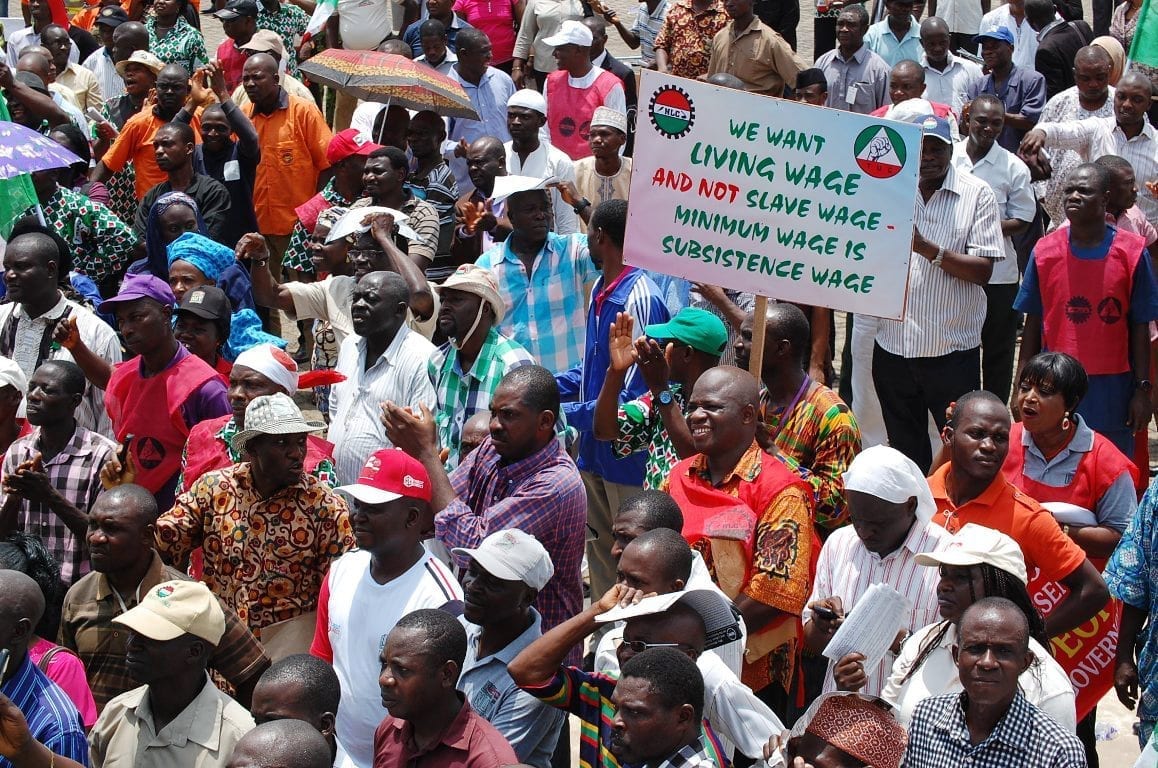
Dec 5, 2014
Inequality around the world has its roots in the labor market, according to this year’s International Labor Organization’s (ILO) “Global Wage Report.” ILO research shows that increased worker productivity–particularly in developed economies, where inequality saw its widest increase—has had little effect on boosting wages. However, some emerging and developing economies, especially those focused on poverty reduction, did see inequality decline through a greater focus on more equitable wage distribution and increased paid (as opposed to self-) employment.
The ILO found that minimum wages contribute effectively to reducing wage inequality—and collective bargaining is “a key instrument for addressing inequality in general and wage inequality in particular.”
Some of the blame for flat wage growth can be laid on the 2008 financial crash, which pushed workers out of jobs and lowered growth rates in many economies. The long-term forces of globalization, technology and the decline of unions also have contributed to the problem.
“Average monthly real wages grew globally by 2 percent in 2013, down from 2.2 percent in 2012,” according to the report. Developing and emerging economies drove this growth: Asia saw a 6 percent increase, Eastern Europe and Central Asia nearly 6 percent and the Middle East saw real wages rise by almost 4 percent. Wages in Latin America and the Caribbean rose by less than 1 percent. Average wages in developed countries grew just 0.4 percent since 2009, despite a 5.3 percent increase in worker productivity.
Inequality fell most in Argentina and Brazil. Workers’ real wages in industrialized countries like Japan, Spain and the United Kingdom are less than they were in 2007.
In almost all countries surveyed, wage gaps remain between women and men, between national and migrant workers and between workers in the formal and informal economy.
According to the ILO, the gender “wage penalty” occurs despite education, experience and productivity, and often as a result of discrimination. Indeed, women’s average wages are between 4 percent and 36 percent less than men’s, and the gap widens for higher-earning women. Closing that gap will require policies to combat discrimination and gender-based stereotypes, and improve maternal, paternal and parental leave, says the report.
The ILO was created in 1919, as part of the Treaty of Versailles that ended World War I, to reflect the belief that universal and lasting peace can be accomplished only if it is based on social justice.
Read a summary of the full Global Wage Report.
Check out the Global Wage Report in Short (video).
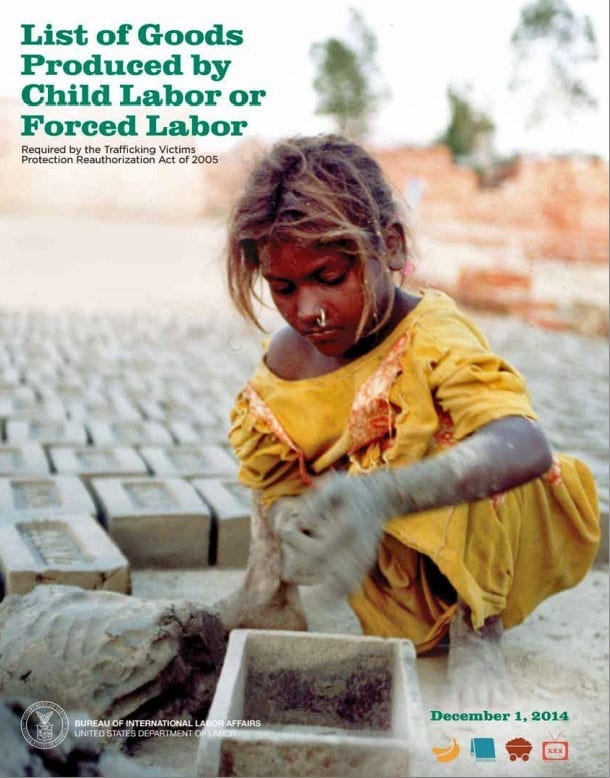
Dec 3, 2014
Cotton production involves the most child labor and forced labor in the world, according to the 2014 “List of Goods Produced by Child Labor or Forced Labor” by the U.S. Labor Department’s Bureau of International Labor Affairs.
Overall, 126 goods are produced annually by child labor and 55 goods produced through forced labor. Most of the goods, like cotton, are found in common items like T-shirts or are among popular foods, such as melons and rice.
The sixth annual report, released this week, added 11 goods produced with children’s labor: garments from Bangladesh; cotton and sugarcane from India; vanilla from Madagascar; fish from Kenya and Yemen; alcoholic beverages, meat, textiles and timber from Cambodia; and palm oil from Malaysia. Electronics from Malaysia made the list for being produced with forced labor.
Uzbekistan, listed among countries using forced labor, including children, for cotton production, routinely requires teachers to leave classrooms and work in the country’s annual cotton harvest, according to a report the Uzbek-German Forum issued last month.
The lengthy list of goods produced with child labor and forced labor includes garments, fish coffee, shrimp and other shellfish, tea, corn, tobacco and peanuts.
See the full list.
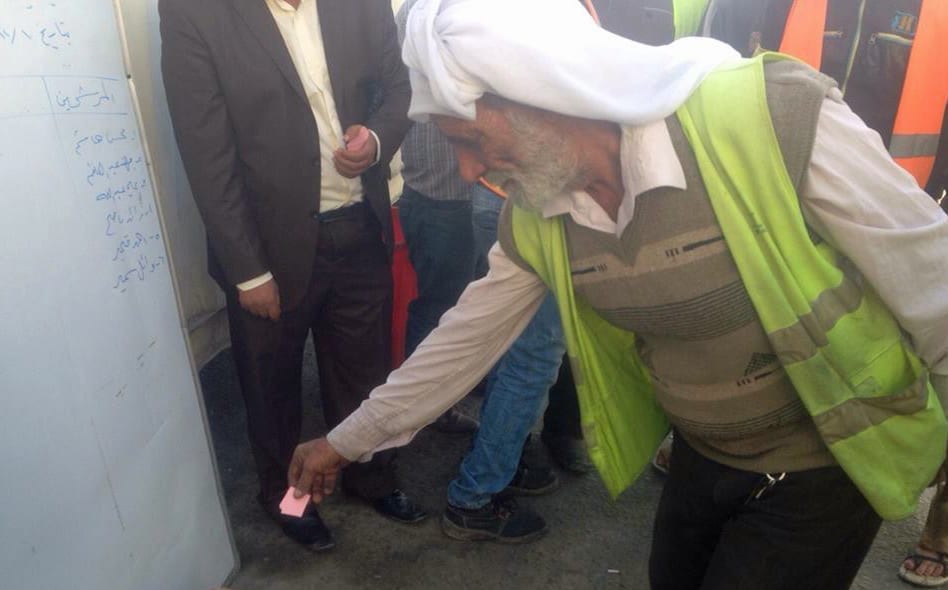
Nov 25, 2014
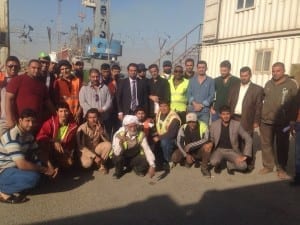 Transport workers at Gulftainer in the Iraqi port of Om Qasr port formed a union committee in November following a three-year organizing effort that involved raising awareness among workers about their rights on the job.
Transport workers at Gulftainer in the Iraqi port of Om Qasr port formed a union committee in November following a three-year organizing effort that involved raising awareness among workers about their rights on the job.
Recognizing they would be better able to negotiate for improved wages and working conditions if they were part of a union, some 119 workers have elected three members to a labor committee that will oversee union elections. The union would be an affiliate of the General Federation of Iraqi Trade Unions (GFITU).
The decision to hold elections signifies a key turning point for Iraqi unions, which generally have waited for management approval to form union committees but now recognize that the freedom to form unions is guaranteed by national and international law. Workers at Gulftainer talked with workers outside the workplace, and also reached out to night shift workers. They held an awareness workshop in Basra and an election preparatory meeting, where they discussed the mechanisms of implementing elections, and the participation of night shift workers in elections.
The newly-elected chairman of the union committee and two other workers at Gulftainer previously took part in a Solidarity Center workshop centered on developing organizing skills among worker representatives at companies funded by International Finance Corporation (IFC) loans.
The Solidarity Center is working with Iraqi trade unions to promote international labor standards at worksites, especially those where companies receive IFC loans, by using the performance standard of IFC institutions to protect worker rights. Iraq’s labor code, created under Saddam Hussein, contains significant gaps in areas of discrimination, forced labor and the right to collective bargaining.
Iraqi unions elsewhere are improving working conditions at IFC-funded workplaces, following Solidarity Center training programs, and are documenting violations and negotiating with management to improve working conditions.
For example, at Erbil Rotana Hotel and at Bazian and Tasluja cement factories in Sulimanyya, workers who took part in the trainings sharpened their organizing skills and went on to negotiate improved work contracts so that workers now receive overtime pay, in accordance with Iraqi labor
Nov 17, 2014
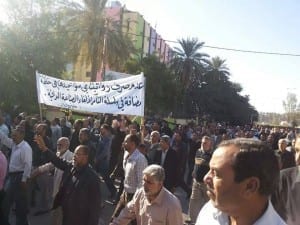
Carrying signs protesting unpaid wages, Iraqi textile workers were among workers from several industries demanding back pay. Credit: Ali Rakeb
The Iraqi government’s offer of partial payment to workers in several industries who have not received salaries for months “is unjust” and should be amended to include all unpaid back pay, says the General Federation of Iraq Trade Unions (GFITU).
The Iraq Council of Ministers last week announced it would pay one month’s wages to workers at plants and factories affiliated with the Ministry of Industry. The companies, which are required to generate sufficient operating revenue to pay 40 percent of workers’ salaries, have repeatedly been unable to do so, and the Ministry of Industry has previously paid workers’ salaries when the companies run out of funds.
The Council of Ministers took the action after thousands of workers in Iraq’s leather, textile and vegetable oil industries protested unpaid wages this month in a series of rallies, most recently in Babylon, where hundreds of workers packed the streets leading to the factory.
Ala’a Sabri, general manager of the association of textile industries in Babylon, said, “the protestors stopped work because they have not been paid since August.”
When vegetable cooking oil company workers in Missan, who also have not been paid since August, took to the streets, they were backed by local government officials who asked the government to pay the workers and renovate Missan’s cooking oil factory, which employs 630 workers.
Clothing company employees in Najaf, who produce men’s suits, pants, jackets, gown’s (dishdasha) and military uniforms, and textile workers in Diwanyya and at the Kut textile factory, also rallied for unpaid wages.
“We are protesting today to request the officials resolve these issues,” Hayder Abdul Amir, one of the protesting employees at Kut, told Al Mada press. “We will continue until they comply with our demands.”
Earlier this month, leather workers, who have not been paid for two months, marched in a large demonstration at two leather companies in Karradha, in central Baghdad. The rally followed one in September, when leather workers protested unpaid wages from July and August.
In an action in support of workers, GFITU members rallied at the Ministry of Interior to demand the government formulate clear policies that guarantee the rights of workers in Iraq’s industrial sector by ensuring workers are paid on time. GFITU also called on the government to take steps to address ongoing factory closures that have put many workers out of a job.
GFITU presented a memo addressed to the Prime Minister Hayder Al Abadi that states: “A large percentage of Iraq’s population, represented by 350,000 employees of the Ministry of Interior and their families, are suffering from hardship and serious neglect.”
The memo listed several demands, including timely wage payment; government transparency when awarding textile and other industry contracts; and creation of a joint government council to address obstacles companies face in staying solvent.
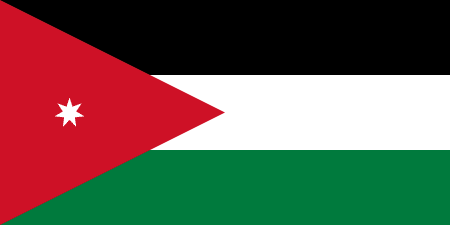
Nov 17, 2014
Tayel Alkhamayseh, president of the Independent Union of Phosphates Workers in Jordan, returned to his job this month after worker and human rights organizations denounced his November 6 arrest and suspension, pressed for his reinstatement and decried his arrest as a move to prevent unionization at the plant.
The Jordanian Federation of Independent Trade Unions (JFITU) sent letters protesting his detention to the Ministry of Labor and company management. The National Center for Human Rights and Jordanian civil society organizations generated additional support for Alkhamayseh, who was reinstated after a meeting with management in which it was established that he had no intention of declaring a strike.
The Phosphate Workers Union is affiliated to the JFITU, which is campaigning for the Jordanian government to adopt legislation to allow full freedom of association for all workers.
The JFITU says Alkhamayseh’s arrest and suspension indicate continuing pressure to restrict the practice of independent trade unionism in Jordan. The federation notes that his reinstatement is an important demonstration of Jordanian support for independent trade unionism.
The federation formed last year, when nine unions representing more than 7,000 workers joined forces to mobilize for improved economic conditions and greater political freedom.
Alkhamayseh, an engineer, works in the White Valley phosphate mine near Karak in the south of Jordan. As president of the workers’ union in Karak, he organized a meeting that included workers from several branches of the same company. Management then suspended Alkhamayseh and accused him of inciting a strike. In response, workers organized a protest and work stoppage.






